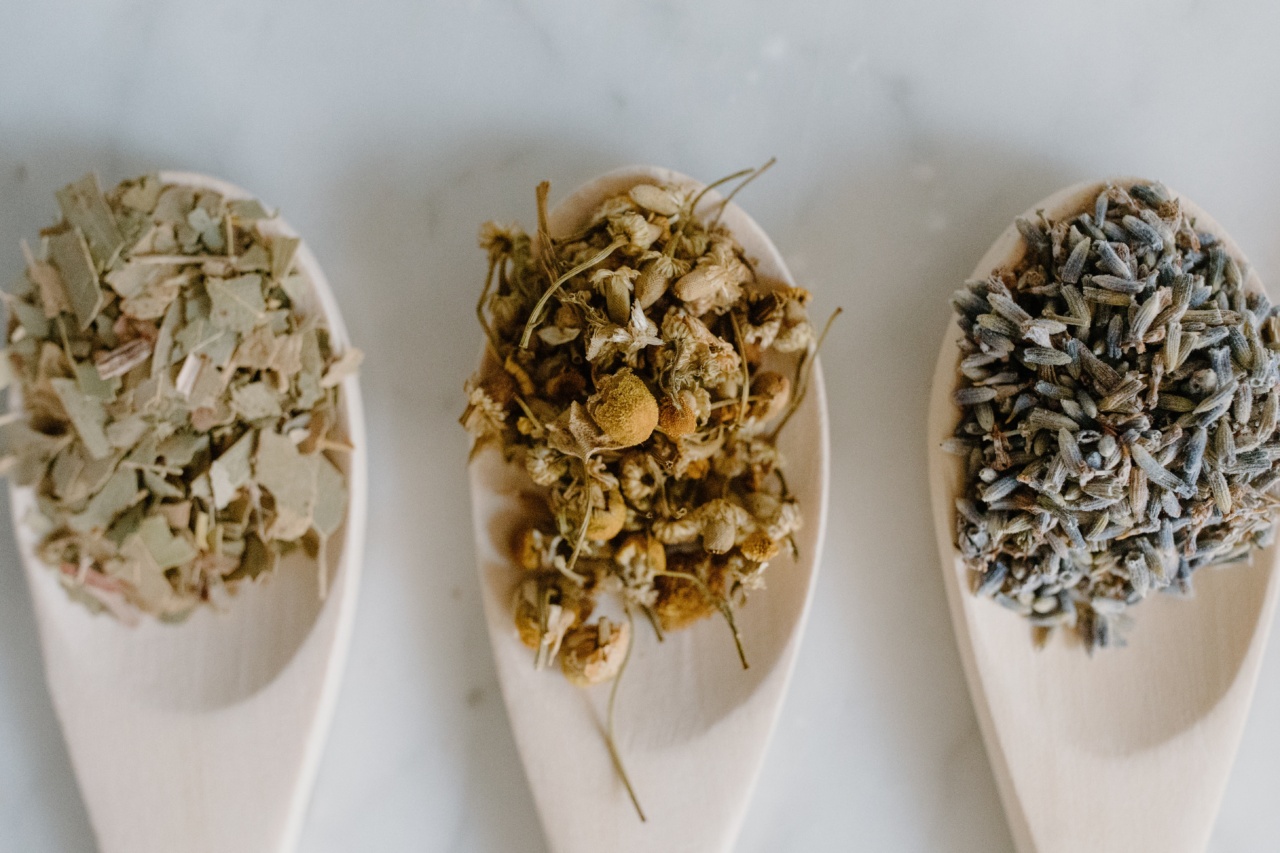Having a queasy stomach can be a distressing and uncomfortable experience. Whether it’s caused by motion sickness, indigestion, or a stomach bug, finding relief is essential.
While over-the-counter medications are readily available, many people prefer a more natural approach to alleviate their symptoms. This article explores various herbal cures for queasy stomachs and how they can effectively provide relief.
1. Ginger
Ginger is widely recognized for its ability to soothe digestive discomfort. This aromatic herb contains gingerol, a compound known for its anti-inflammatory and analgesic properties.
Ginger can help relieve nausea, cramps, and bloating by increasing digestive enzyme activity and reducing muscle contractions in the gut.
One popular way to consume ginger is by drinking ginger tea. Simply steep grated ginger in hot water for 10 minutes and sip it slowly. Alternatively, ginger can be ingested in capsule or chewable form.
Adding fresh ginger to your meals can also provide relief, especially during periods of stomach discomfort.
2. Peppermint
Peppermint is another herb commonly used to ease queasy stomachs. Its active compound, menthol, has antispasmodic properties that relax the muscles of the gastrointestinal tract, reducing cramps and bloating.
Peppermint also has a cooling effect, which can help soothe irritation in the stomach.
One way to consume peppermint is by drinking peppermint tea. Steep a few fresh or dried peppermint leaves in boiling water for five minutes and enjoy. Peppermint essential oil can also be diluted and applied topically to the abdomen for quick relief.
3. Chamomile
Chamomile is celebrated for its calming effects on the body and mind. This herb contains compounds such as bisabolol and chamazulene, which have anti-inflammatory and muscle-relaxing properties.
Chamomile can help alleviate stomach cramps, nausea, and indigestion.
Brew a cup of chamomile tea by steeping dried chamomile flowers in hot water for five minutes. Sip the tea slowly to promote relaxation and relieve queasiness. Chamomile supplements in capsule form are also available for more convenient consumption.
4. Fennel
Fennel seeds have been used for centuries to alleviate digestive issues, including a queasy stomach. These tiny seeds contain anethole, a compound with antispasmodic properties that can relieve bloating, cramps, and nausea.
Fennel also stimulates the production of digestive juices, supporting healthy digestion.
You can chew on a teaspoon of fennel seeds after meals to aid digestion and prevent queasiness. Fennel tea can also be prepared by steeping crushed fennel seeds in hot water for 10 minutes.
5. Lemon Balm
Lemon balm, also known as Melissa officinalis, is a herb widely used for its calming effects. It can help alleviate stress-related queasiness and nervous stomach.
Lemon balm contains rosmarinic acid, which has antispasmodic properties that soothe the muscles of the digestive tract.
Prepare a cup of lemon balm tea by steeping fresh or dried lemon balm leaves in hot water for about 10 minutes. You can also find lemon balm in supplement form for more concentrated effects.
6. Licorice Root
Licorice root has been used for its medicinal properties in traditional medicine for centuries. It contains glycyrrhizin, a compound with anti-inflammatory and antioxidant effects.
Licorice root can help soothe inflammation in the stomach and relieve discomfort caused by indigestion or bloating.
Drink licorice root tea by steeping a teaspoon of dried licorice root in hot water for 10 minutes.
Ensure that you opt for deglycyrrhizinated licorice (DGL) if you have high blood pressure or are at risk of heart problems, as it reduces the content of glycyrrhizin that can affect blood pressure.
7. Cinnamon
Cinnamon has been utilized in traditional medicine for its warming and comforting properties. It can help ease queasy stomachs by improving digestion, reducing cramps, and relieving nausea.
Prepare a cup of cinnamon tea by steeping a cinnamon stick or a teaspoon of cinnamon powder in hot water for 10 minutes. You can add honey for taste and added soothing benefits.
Sprinkling cinnamon powder on your meals or incorporating it into your baking can also provide relief for queasy stomachs.
8. Dandelion Root
Dandelion root is a powerhouse herb known for its numerous health benefits. It promotes healthy digestion by increasing bile production, which aids in the breakdown of fats and enhances the absorption of nutrients.
Make dandelion root tea by steeping a teaspoon of dried, roasted dandelion root in hot water for 10 minutes. The tea has a slightly bitter taste; however, it can effectively alleviate queasy stomachs and support overall digestive health.
9. Slippery Elm
Slippery elm bark has long been used as an herbal remedy for gastrointestinal distress. It contains a gel-like substance called mucilage that coats the stomach and intestines, protecting them from irritants and reducing inflammation.
You can find slippery elm in powder or capsule form. Mix a teaspoon of the powder with warm water to create a soothing tea-like consistency and consume it slowly. Slippery elm powder can also be mixed with honey or maple syrup for added taste.
10. Coriander
Coriander, also known as cilantro, is a versatile herb commonly used in cooking. It possesses carminative properties that can prevent and relieve gas, bloating, and stomach discomfort.
An easy way to incorporate coriander into your diet is by adding chopped fresh coriander leaves to your meals. You can also prepare coriander tea by steeping a teaspoon of crushed coriander seeds in hot water for about 10 minutes.






























